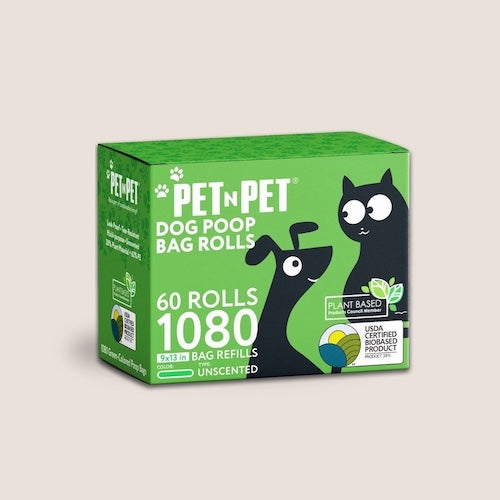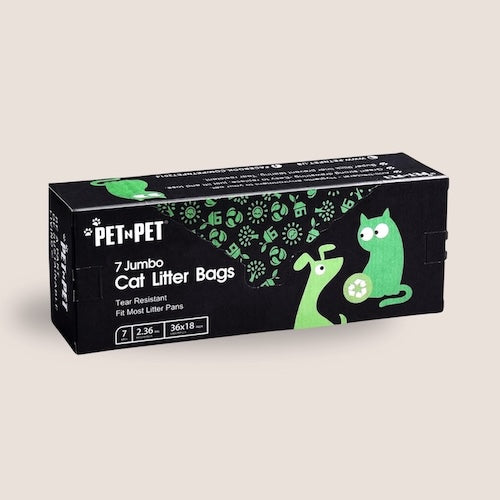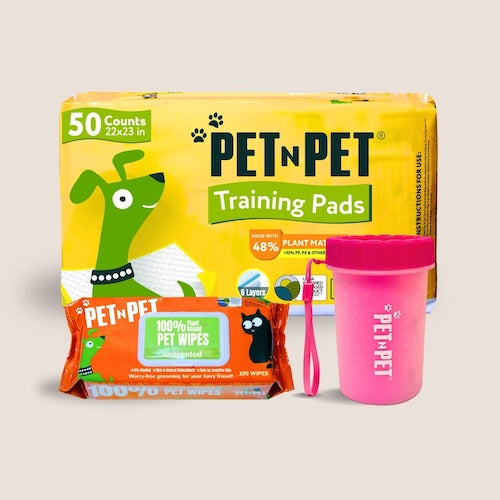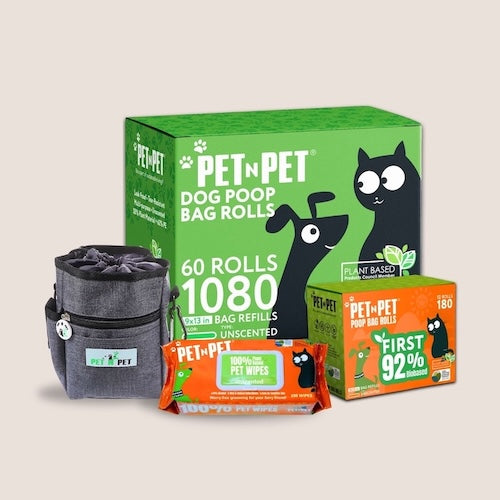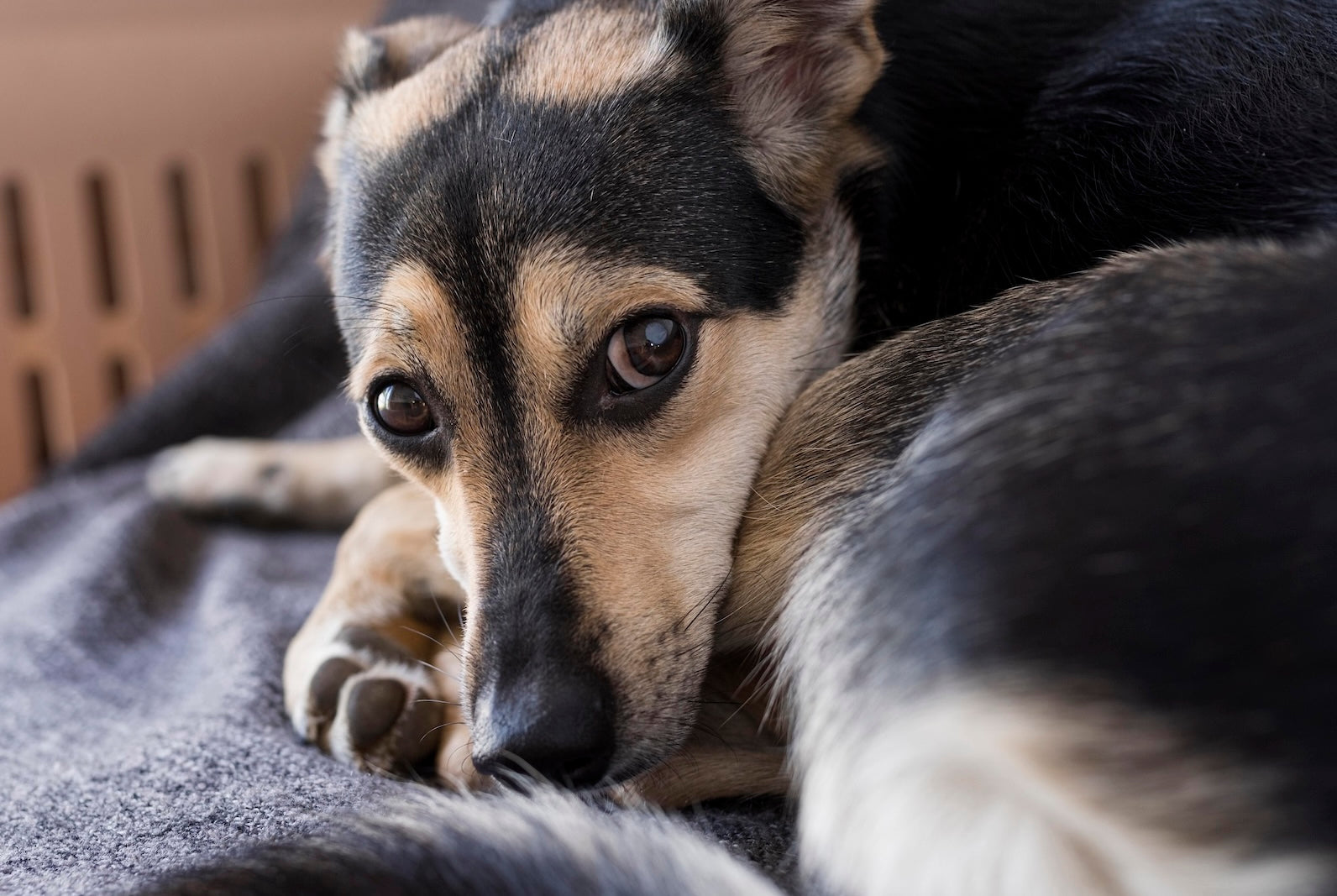
What to Do When Your Pet Has Diarrhea: A Pet Owner’s Guide
Dealing with a pet who suddenly has diarrhea can be worrying. The good news is that this is a common issue in both dogs and cats, and in many cases, it can be managed at home with proper care. By understanding the possible causes, monitoring symptoms, and knowing when to seek veterinary help, you can make sure your furry friend recovers quickly and safely.
Common Causes of Diarrhea in Dogs and Cats
Identifying the reason behind your pet’s upset stomach is the first step in preventing it from happening again. Some of the most common causes include:
1. Sudden Dietary Changes
Switching your pet’s food too quickly can upset their digestive system. Pets do best when diet changes are gradual. If you plan to introduce new food, mix it slowly with their old food over a week or two.
💡 Tip: If you’re adjusting your pet’s meals, make sure you also have the right pet supplies and cleanup essentials on hand for any accidents.
2. Food Sensitivities or Allergies
Some pets may react poorly to certain ingredients like grains, dairy, or specific proteins. Food allergies can lead to diarrhea, bloating, or general stomach discomfort. A veterinarian can help determine which foods may be causing the problem.
3. Parasites
Internal parasites such as roundworms, hookworms, and Giardia are frequent culprits of diarrhea. Regular deworming and routine checkups are key to keeping your pet healthy and parasite-free.
4. Infections
Bacterial, viral, or fungal infections may cause digestive upset, especially in younger or weaker pets. A vet may need to run tests to identify the infection and provide the right treatment.
5. Eating Something They Shouldn’t
Pets are curious by nature and may consume spoiled food, trash, or harmful objects. Depending on what they eat, this can range from mild stomach upset to a serious medical emergency.
💡 Pro tip for prevention: Always keep trash and waste securely managed. Using reliable dog poop bags makes cleanup easier and helps prevent pets from getting into something harmful.
6. Stress and Anxiety
Changes in routine, moving homes, or new family members can make pets anxious. Stress can affect their digestive system and trigger diarrhea. Providing stability and comfort can ease their stress-related tummy troubles.
7. Side Effects of Medication
Some medications, like antibiotics, may cause temporary diarrhea. If this happens, monitor your pet and consult your vet if it persists.
Recognizing the Symptoms
Diarrhea isn’t just about loose stools—it often comes with other warning signs. Look out for:
-
Watery or frequent bowel movements
-
Vomiting or loss of appetite
-
Lethargy or low energy
-
Signs of dehydration (dry gums, sunken eyes)
-
Blood or mucus in the stool
If your pet shows severe symptoms or the diarrhea lasts longer than two days, it’s time to call the vet.
What to Do When Your Dog Has Diarrhea
For mild, short-term diarrhea, many cases can be managed at home:
-
Introduce a Bland Diet: Offer boiled chicken (no skin or seasoning) with plain white rice in small portions.
-
Hydration is Key: Always make sure your dog has access to fresh water. Diarrhea can quickly lead to dehydration.
-
Rest and Observation: Limit treats and other foods until their stool returns to normal. Monitor their energy levels and appetite closely.
-
Transition Slowly Back to Regular Food: Once your dog improves, gradually reintroduce their normal diet over a couple of days.
Cat Diarrhea: Treatment and Tips
Cats can be more sensitive than dogs, and their diarrhea often requires extra care:
-
Feed Simple, Gentle Meals: Offer easily digestible food like plain cooked chicken or a specially formulated sensitive-stomach cat food.
-
Encourage Hydration: Wet food can help keep your cat hydrated. Make sure they always have clean water available.
-
Litter Box Monitoring: Keep the litter box clean to track changes in their stool.
-
Provide a Stress-Free Environment: Cats are easily affected by stress, so give them a quiet and comfortable place to relax.
When to Seek Veterinary Help
While mild diarrhea can often be treated at home, professional care is needed if:
-
Diarrhea lasts longer than 48 hours
-
Stool contains blood, mucus, or looks black and tar-like
-
Your pet is vomiting repeatedly
-
They show signs of dehydration (dry gums, sunken eyes, weakness)
-
They are very young, very old, or already have health issues
-
You suspect they ate something toxic or dangerous
Final Thoughts
Diarrhea in pets is common, but it should never be ignored. By knowing the causes, recognizing the warning signs, and giving your pet the right care at home, you can help them bounce back quickly. Always keep a close eye on their symptoms and don’t hesitate to contact your veterinarian if something seems serious.
✅ As part of responsible pet care, remember that daily cleanup and proper supplies are essential. Browse our Pet N Pet collection for durable poop bags and other products designed to make life with pets cleaner and easier.
Your pet depends on you to keep them safe and healthy—being prepared for situations like this is a big part of responsible pet ownership.
